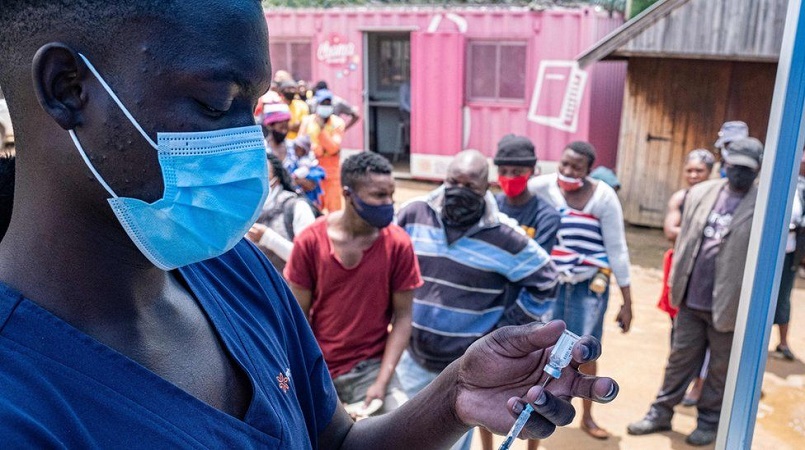
The World Health Organization (WHO) has warned that the new coronavirus variant Omicron is probably already present in most countries around the world.
Cases of the heavily mutated variant have been confirmed in 77 countries.
But WHO chief Tedros Adhanom Ghebreyesus said it was probably in many others that had yet to detect it, and was spreading at an unprecedented rate.
Dr Tedros said he was concerned that Omicron was being underestimated.
"Surely, we have learned by now that we underestimate this virus at our peril. Even if Omicron does cause less severe disease, the sheer number of cases could once again overwhelm unprepared health systems," he said.
The Omicron variant was first identified in South Africa in November, and the country has since seen a surge in infections. President Cyril Ramaphosa has tested positive for Covid-19, and is currently isolating with mild symptoms.
A number of countries have introduced travel bans affecting South Africa and its neighbours following the emergence of Omicron, but this has failed to stop it from spreading around the world.
Dr Tedros told reporters that Omicron was "spreading at a rate we have not seen with any previous variant".
The UK government announced on Tuesday that all 11 countries on its travel red list would be taken off, with Health Secretary Sajid Javid saying the variant had spread so widely the rules no longer had much purpose.
The UK is among several European countries to have tightened coronavirus measures amid concerns over the variant.
People in Scotland have been asked to limit socialising to three households at a time in the run-up to Christmas.
The Netherlands announced on Tuesday that primary schools would close a week before the Christmas holidays were due to start, while Norway said there would be a ban on serving alcohol in bars and restaurants, among other measures.
